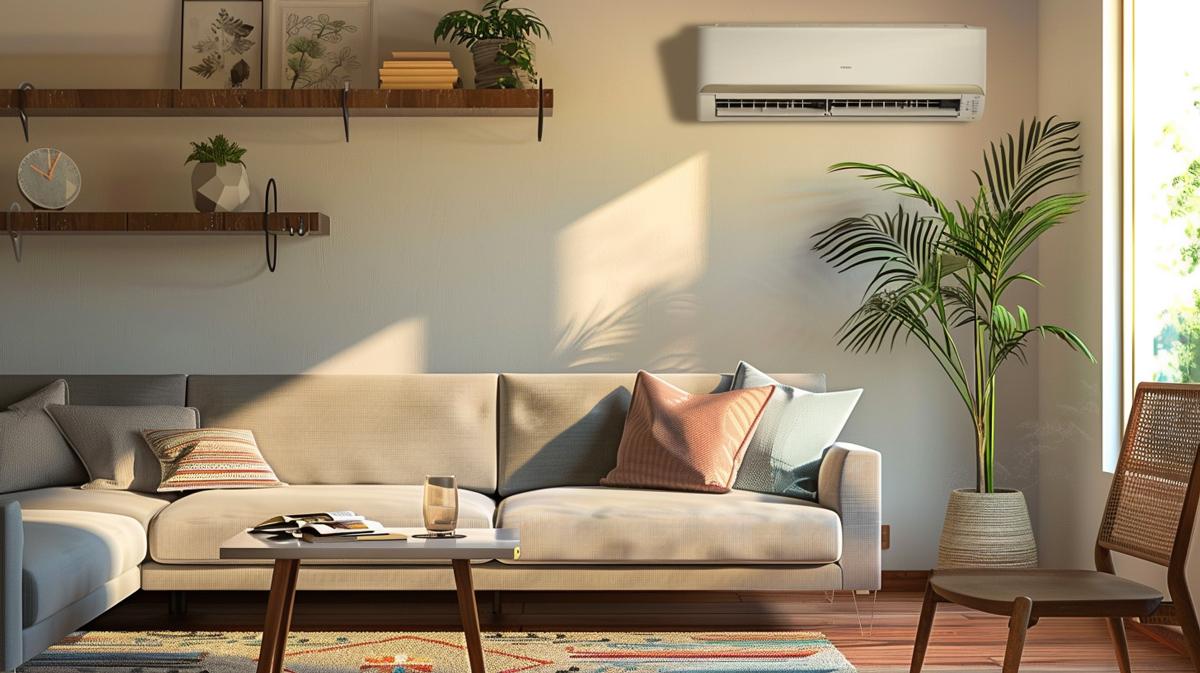


Last updated on April 17, 2024
So here’s the question – Daikin vs Fujitsu. Which is better?
With so many aircon brands available, it makes choosing which new air conditioner to install in your Australian home a challenge. Let’s face it, it’s not a purchase we want to make, it’s a grudge purchase. But if we get a few Summer months of 40 degrees + 🥵, having a reliable and efficient air conditioner is top of the priority list. Among the top contenders in the residential air conditioning industry are Daikin vs Fujitsu. Two reputable brands known for their cutting-edge technology and performance. In this blog, we will conduct a comprehensive comparison of Daikin and Fujitsu air conditioners, evaluating 11 key factors to help you make an informed decision for your home.
Daikin: Known for advanced inverter technology providing precise temperature control and high Coefficient of Performance (COP), leading to lower energy consumption and bills. Offers whisper-quiet operation with noise levels as low as 19 decibels.
Fujitsu: Noted for powerful and efficient cooling performance, making it ideal for larger rooms. Offers a wide range of models with varying capacities. Features innovative technologies like human sensors and automatic airflow adjustment.
Daikin: Achieves high energy efficiency ratings, often with a 5-star energy rating. Uses advanced inverter technology for optimal energy usage.
Fujitsu: Also offers good energy efficiency with many models achieving a 4- or 5-star energy rating. However, the Coefficient of Performance (COP) may be slightly lower compared to Daikin.
Daikin: Features like “intelligent eye” and 2-Area Intelligent Eye for enhanced performance and convenience. Offers Wi-Fi connectivity for remote control using a smartphone or smart device.
Fujitsu: Includes features such as human sensor and automatic airflow adjustment. Also offers Wi-Fi connectivity for remote control via an app.
Both Daikin and Fujitsu offer a wide range of air conditioner models with varying cooling capacities to suit different room sizes and requirements. Daikin is known for its advanced inverter technology that provides precise temperature control and energy efficiency. Daikin air conditioners also have a high Coefficient of Performance (COP), which means they can deliver more cooling or heating output per unit of electricity consumed, resulting in lower energy bills. Fujitsu, on the other hand, is known for its powerful 💪 and efficient cooling performance, making it ideal for larger rooms or open-plan living spaces.
In Australia, energy efficiency is becoming more of a consideration when choosing an air conditioner, as it can significantly impact your electricity bills. Daikin air conditioners are known for their high energy efficiency ratings, with many models achieving a 5-star energy rating, the highest possible rating. The advanced inverter technology used in Daikin air conditioners allows them to adjust the compressor speed according to the cooling or heating requirements, resulting in optimal energy usage.
Fujitsu air conditioners also offer good energy efficiency ratings, with many models achieving a 4- or 5-star energy rating. However, their Coefficient of Performance (COP) may be slightly lower compared to Daikin, which could result in slightly higher energy consumption.
When it comes to features and technology, both Daikin and Fujitsu offer innovative solutions to enhance the performance and convenience of their air conditioning units. Daikin air conditioners come with features such as “intelligent eye”, which uses infrared sensors to detect human presence and adjust the temperature accordingly, and 2-Area Intelligent Eye, which directs airflow to areas that require more cooling or heating. Daikin also offers Wi-Fi connectivity, allowing you to control your air conditioner remotely using a smartphone or a smart device. Fujitsu air conditioners, on the other hand, come with features such as human sensor, which detects movement and adjusts the airflow accordingly, and automatic air flow adjustment, which ensures a comfortable airflow distribution in the room. Fujitsu also offers Wi-Fi connectivity, allowing you to control your air conditioner remotely using their app.
Noise levels can be an important consideration when choosing an air conditioner, especially if you plan to install it in a bedroom or a living room where you spend a significant amount of time. Daikin air conditioners are known for their quiet operation, with many models featuring a “whisper quiet” mode that reduces noise levels to as low as 19 decibels, which is equivalent to the sound of a whisper.
Daikin also uses advanced technologies such as Aero Quiet Operation and Vertical Airflow for reduced noise levels. Fujitsu air conditioners also offer quiet operation, with many models featuring a “quiet” or “silent” mode that reduces noise levels to as low as 20 decibels. Fujitsu also uses technologies such as Quiet Mode and Coanda Airflow for reduced noise levels.
Warranty is an important factor to consider when investing in a new air conditioner, as it provides peace of mind and protection against potential defects or issues. Daikin offers a comprehensive warranty on its air conditioners, with most models coming with a 5-year parts and labour warranty. Some Daikin models, such as the premium models, may even come with an extended warranty of up to 7 years. Fujitsu also offers a warranty on its air conditioners, with most models coming with a 5-year parts and labour warranty.
All-in-all, our technicians are happy to install either brand into Hunter Valley and Australian homes. They’re both great brands, with excellent support and have a good lifespan that you can rely on in the peak of our Australian Summers.

